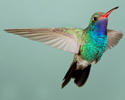You don’t have to be fighting a life threatening illness to be celebrating the end of a season that packed way too much wind, water, snow and cold. As someone who has lost a significant amount of his normal body weight, however, I find it particularly sweet. Even though I have regained close to half of what I had lost since the onset of ALS, inactivity from paralysis keeps me extremely vulnerable to the cold. My body doesn’t start to feel warm until the thermometer reaches at least 75 degrees. Venturing outdoors during the colder weather requires so much warm clothing that I can barely exercise what little physical mobility I have. The combination of the exposure and reduced independence can put quite a damper on my incentive to leave the house.
Gazing through my bedroom window in recent mornings, while basking in the warmth of the sun’s rays and studying the greening of the grass and the formation of the trees’ new buds, the rebirth that is spring surges inside of me. I look forward with the anticipation and excitement of a circus bound child to strolls around the block with my wife, visits with friends and neighbors, shopping excursions, dining out, trips to parks, and other outings. I especially look forward to testing the extent of the regained strength in my right hand for driving my wheelchair. During a recent walk with my aide, on one of the first days to break into the mid-sixties, my hand lasted far longer than I expected before experiencing fatigue. This leaves me very excited about the prospects for my increased level of activity this spring and summer.
Among the things that make living with ALS difficult is the constant bombardment by external reminders of the limitations it can impose. The bone-chilling feel of temperatures that used to seem mild reminds me of the frailty of my body. Inabilities to scratch an itch or grasp a pencil are among the constant reminders of the mobility ALS has stolen. Perhaps worst of all, is the loss of dignity and disrespect that can be suffered at the hands of well-meaning strangers who assume how badly you feel and behave out of pity based on the projection of their own fears of what it would be like to be in your place.
What facing such situations has taught me, as did the challenges of sleeping with ALS, is the importance of choosing how to focus my attention. Making conscious choices about how to view my circumstances has helped me cope with or prevent the stress of health issues, financial problems, interpersonal challenges, and other crises. Living with ALS has taught me that we human beings have tremendous power to direct our thoughts, and that our thoughts in turn have tremendous influence on our mental, emotional, physical, and spiritual well-being. So when I am cold, I work to focus my thoughts on my to-do list for the day. Instead of lamenting over my inability to deal with an itch or handle a pencil, I dwell on the gratitude felt over my continuing ability to steer my wheel chair. Rather than take umbrage over other’s misguided displays of compassion, I consider their intensions, and seek to ease their discomfort. Taking the time to appreciate the beauty around me is just one of the important, yet simple, practices that keep my attention positively focused. Thank God for Spring, which makes it so much easier to apply.





